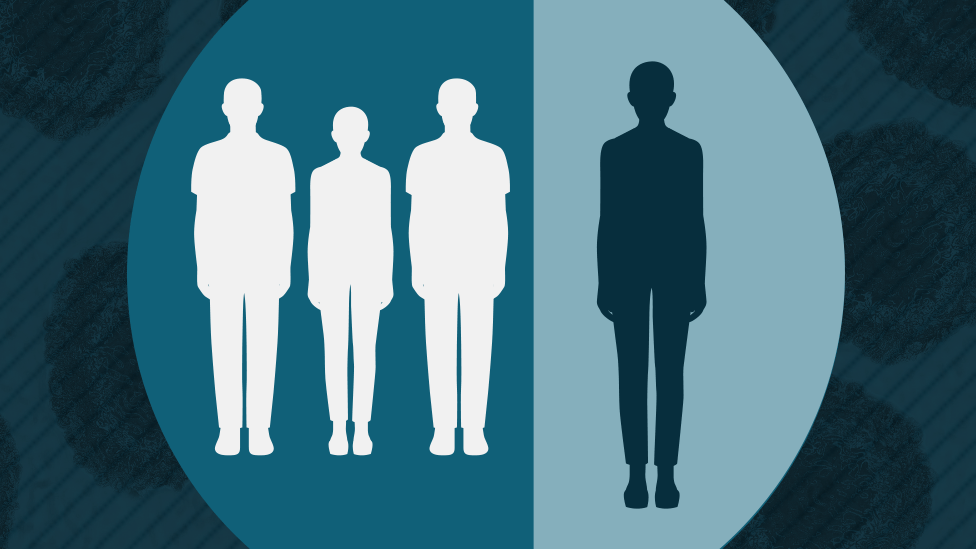Covid in Scotland: Glasgow 'getting used to weekly disappointments'
- Published
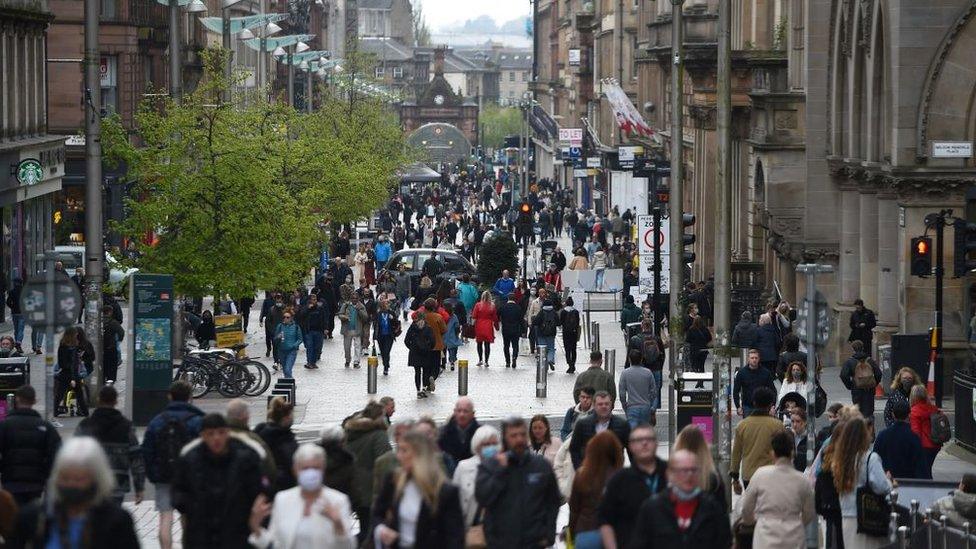
It is thought that many of the people contracting Covid in Glasgow are from younger age groups who have not yet been vaccinated
Businesses and politicians have expressed frustration over Glasgow remaining in level three restrictions.
The area is the only Scottish council under the harsher measures despite speculation it could move to level two.
The first minister said there were still concerns over an outbreak of the variant first discovered in India.
But the delivery of Covid updates on a Friday has been criticised by some, particularly those in hospitality planning for weekend operations.
Mobile testing and vaccination centres have been set up in many parts of Glasgow over the past few weeks, but case numbers have risen by about 30% - from 112 cases per 100,000 to about 136 per 100,000 - over the past week.
Before the news emerged, residents in the city told the BBC they felt "broken by Covid" and while they were continuing to make lifestyle adjustments, the length of the lockdown had left them feeling "institutionalised".
Andrew McRae, Scotland policy chair for the Federation of Small Businesses (FSB), said the city was becoming used to "weekly Friday disappointments" and said breaking the "Friday-for-Monday announcement cycle" would give business owners more notice.
He said: "The first minister did suggest there might be light at the end of the tunnel next week.
"It's very difficult to run a business, or plan your family finances, when you need to tune into the lunchtime news on a Friday to find out if you'll be working on the Monday."
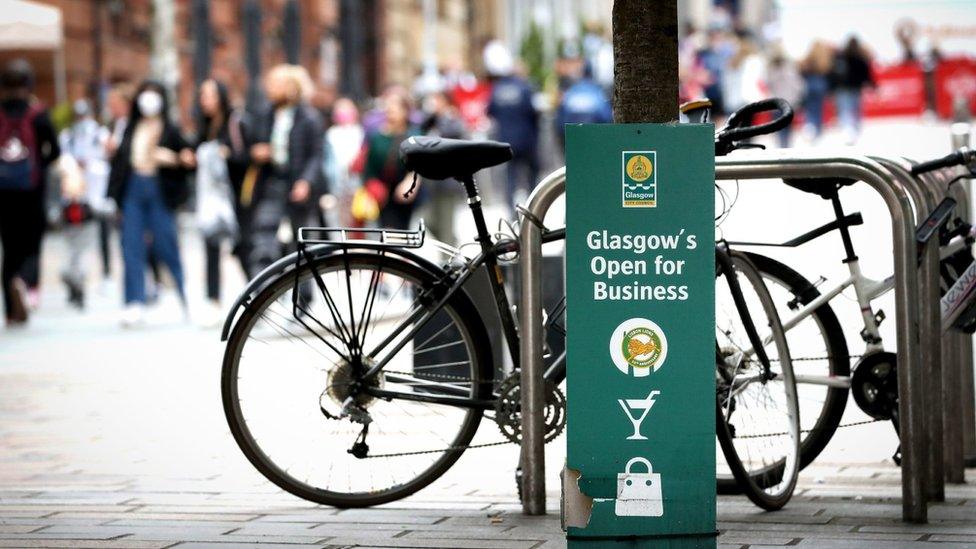
He said the businesses and employees hardest hit by the restrictions needed "proper support now".
"The Glasgow hospitality industry was given two days to scrap their reopening plans. But even now, after two weeks, we still don't have adequate financial support measures in place.
"That needs remedied as a matter of urgency."
Colin Clydesdale, co-owner of west end restaurant Ubiquitous Chip, said the news came as "no surprise" after "so many false starts".
He told the BBC: "What I've been saying is for this industry to come out of this in any semblance of reality it's got to get open as quickly as possible. It's got to start paying for itself again.
"Nobody in this industry wants anyone to come to harm. Let's get that out the way. If what we're about to go through has to be gone through, then I get it. We will go with it, it's for the greater good."
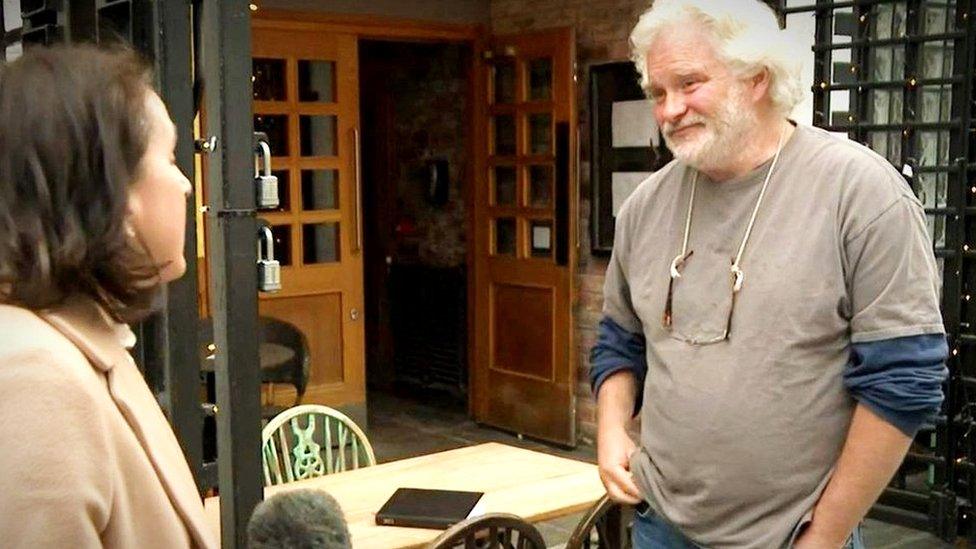
Ubiquitous Chip co-owner Colin Clydesdale told the BBC the news came as no surprise
Police reports obtained by the BBC have revealed that, since 20 November, officers have issued more than 900 travel-related fines across the country.
Stephen Montgomery, spokesperson for the Scottish Hospitality Group, argued that people will "continue" to travel outside Glasgow as a result of the restrictions.
He said: "If things are really that bad that there needs to be this continued lockdown, then this is a counter-productive move and makes no sense as far as the government's policy is concerned.
"It is quite staggering to think that the plan for the (Euro 2020) fan zone at Glasgow Green is in full swing, but here we have a situation where Scottish government thinks that keeping Glasgow City in level three and throwing hospitality businesses a pitiful £750 per week is acceptable."
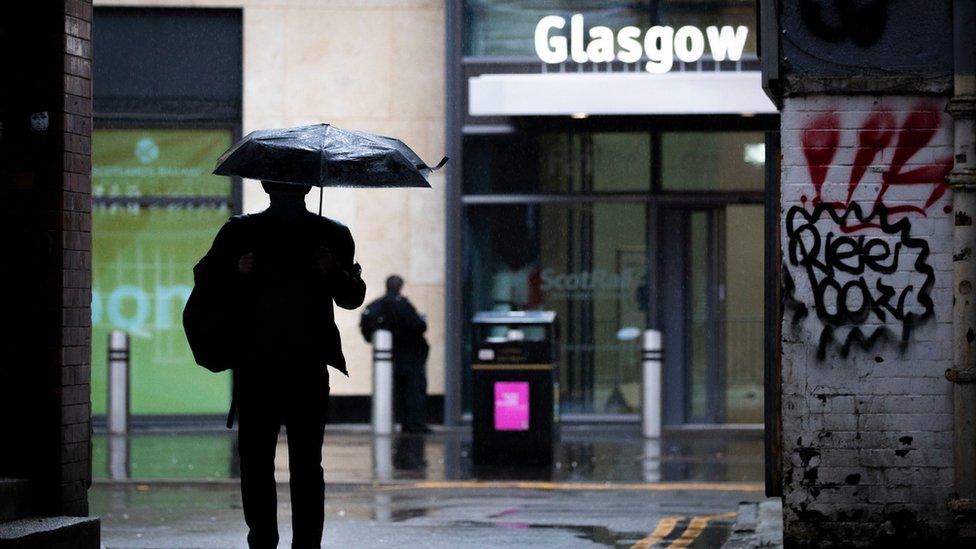
Scottish Labour leader Anas Sarwar also criticised the way the news was delivered and called for an "urgent response" in hotspot areas - including walk-in clinics, mass PCR testing, more support for businesses and wider eligibility to isolation grants.
He said: "The first minister's Covid statement should have been made in parliament, not a TV studio, so that it could be scrutinised by local elected members.
"Glaswegians shouldn't have to wait for a TV press conference on a Friday to hear of their fate from Monday.
"The news that Glasgow will remain in level three is disappointing. We need a clear exit plan, not perpetual lockdown."
The Scottish Greens said they supported a "cautious approach" to managing the pandemic but understood "the substantial frustration" over the matter.
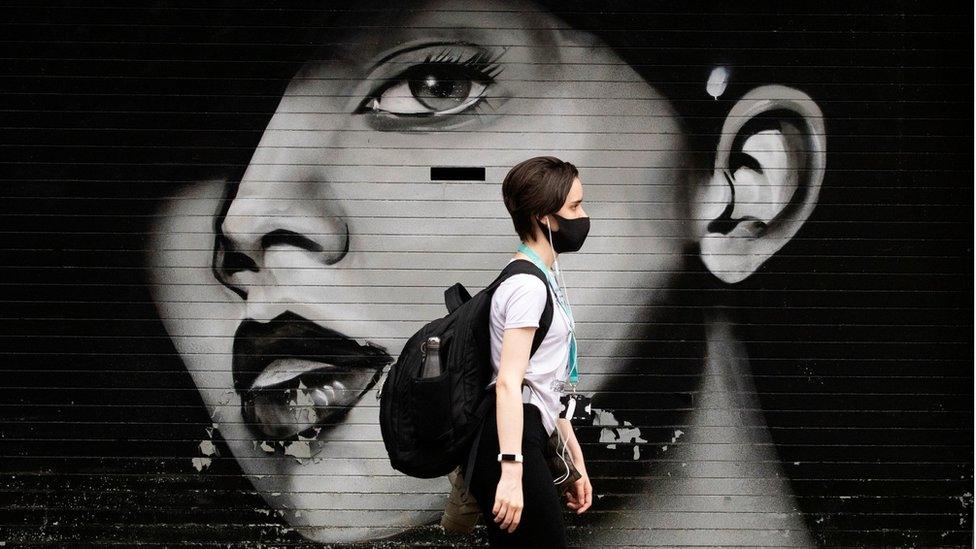
The party's health and social care spokesperson Gillian Mackay MSP said: "It's essential that the Scottish government urgently clarifies what additional support it can make available to workers, particularly those who face losing income when asked to self-isolate, and businesses in the city."
Scottish Conservative leader Douglas Ross said localised measures were needed to tackle local outbreaks. He also called for targeted action to deal with spikes in cases - for example, increased testing and vaccinations.
Mr Ross said: "We know greater testing and improving the vaccination rollout is the way to do that.
"It's far too long for the people of Glasgow and for businesses in Glasgow to be living under these conditions."
Scottish Lib Dem leader Willie Rennie called the government response to vaccination demand "sluggish", saying it was "time to speed up" the process.


Related topics
- Published28 May 2021
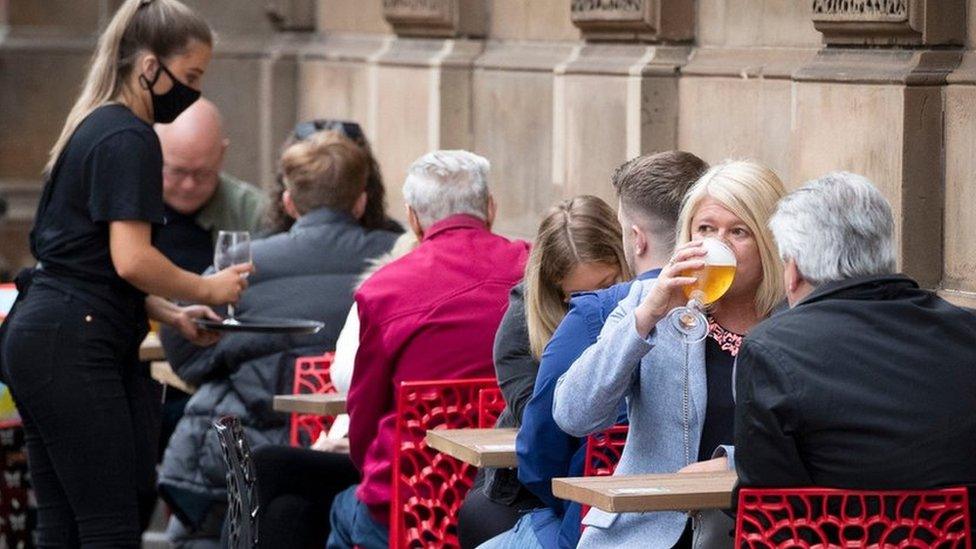
- Published28 May 2021
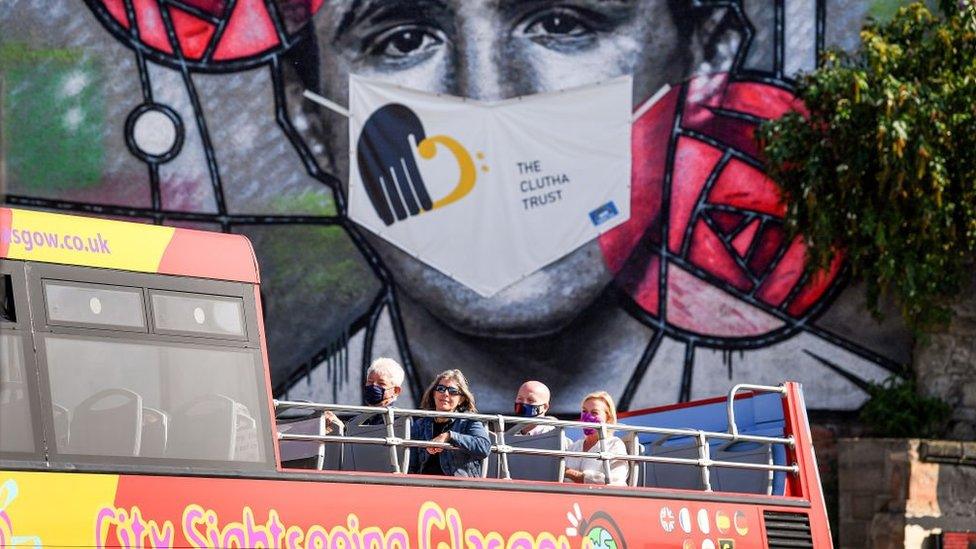
- Published13 January 2023
